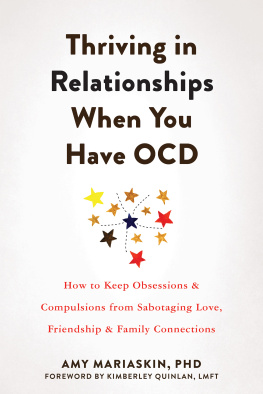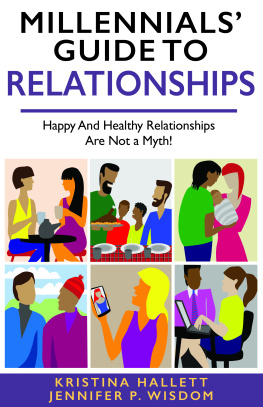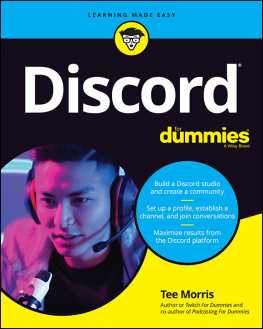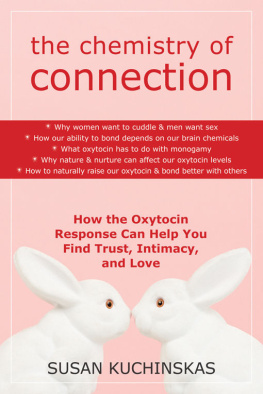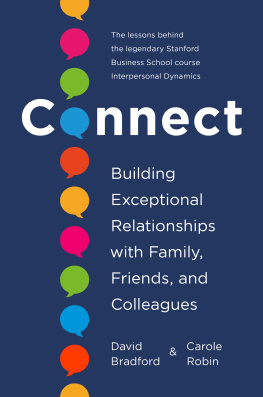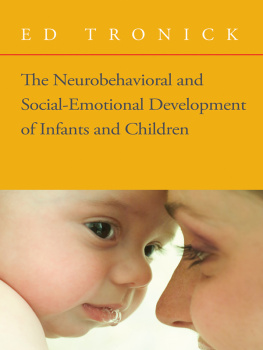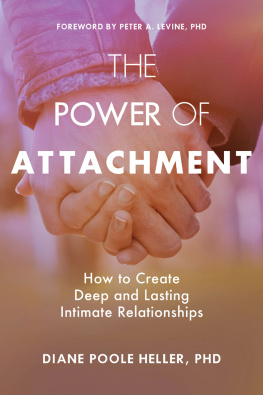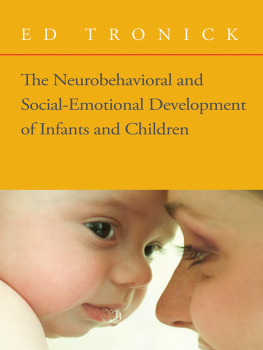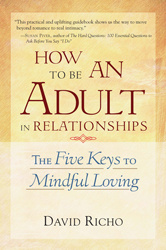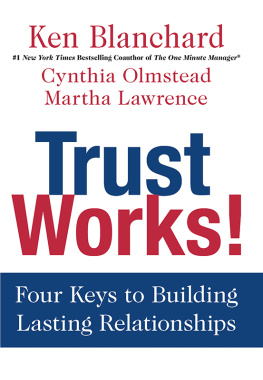Also by Claudia M. Gold, MD
Copyright 2020 by Ed Tronick and Claudia M. Gold
Cover design by Julianna Lee
Cover art by Getty Images
Author photographs by Tricia McCormack (Claudia M. Gold) and Harry Brett, Umass Boston (Ed Tronick)
Cover copyright 2020 by Hachette Book Group, Inc.
Hachette Book Group supports the right to free expression and the value of copyright. The purpose of copyright is to encourage writers and artists to produce the creative works that enrich our culture.
The scanning, uploading, and distribution of this book without permission is a theft of the authors intellectual property. If you would like permission to use material from the book (other than for review purposes), please contact permissions@hbgusa.com. Thank you for your support of the authors rights.
Little, Brown Spark
Hachette Book Group
1290 Avenue of the Americas, New York, NY 10104
littlebrownspark.com
twitter.com/lbsparkbooks
facebook.com/littlebrownspark
Instagram.com/littlebrownspark
First ebook edition: June 2020
Little, Brown Spark is an imprint of Little, Brown and Company, a division of Hachette Book Group, Inc. The Little, Brown Spark name and logo are trademarks of Hachette Book Group, Inc.
The publisher is not responsible for websites (or their content) that are not owned by the publisher.
The Hachette Speakers Bureau provides a wide range of authors for speaking events. To find out more, go to hachettespeakersbureau.com or call (866) 376-6591.
ISBN 978-0-316-48888-4
E3-20200416-JV-NF-ORI
For the faculty and fellows of the University of Massachusetts Boston Infant-Parent Mental Health Program
T HE P OWER OF D ISCORD offers a new way to think about ourselves and our relationships. Over decades of research and clinical experience, we were motivated by some fundamental questions: How is it that some people enjoy a range of satisfying, intimate social connections while others suffer from painful feelings of disconnection and loneliness? Why are some human beings sad, withdrawn, and lacking in self-esteem, whereas others are angry, unfocused, and brittlely self-assertive, and still others are happy, curious, affectionate, and self-confident? How is our ability to feel a sense of belonging and attachment to other people linked with the way we develop our individual sense of self? Perhaps most important, how can answers to these questions, which we uncovered in the course of our work, guide us in finding connection and intimacy when we feel lost and alone, an experience everyone has at one time or another? Before we begin to show you what weve learned, let us introduce ourselves by telling our separate stories and how we came to write this book together.
CLAUDIAS STORY: FROM MANAGING TO LISTENING
The year was 2004. As the generally acknowledged behavioral specialist in my busy small-town pediatrics practice, I increasingly felt that neither my pediatrics training nor my almost twenty years in practice had given me the tools to address the wide range of challenges that arrived in my office. Asking questions and offering guidance, advice, and behavior management often resulted in a sense of frustration and failure both for me and for the families I worked with. Then two visitsone with a defiant teenage boy and another with a three-month-old girl with colicchanged everything.
After meeting alone with fifteen-year-old Alex for about twenty of the thirty minutes typically allotted for an ADHD evaluation, I invited his parents, Carmen and Rick, to join us. Alex sat huddled on a corner of the exam table, wrapping himself tightly in his coat and silently staring at the floor. Carmen and Rick stood, arms across their chests, as far apart as possible. The small space could barely contain the anger and disconnection on display.
For that first visit with Alex and his parents, I followed the typical procedure of taking a history in line with standardized diagnostic assessments for attention deficit hyperactivity disorder. Their answers to my questions seemed to indicate, according to the ADHD rating scale, that Alex might meet the diagnostic criteria for the disorder. We scheduled a follow-up visit for further evaluation and to discuss treatment.
But in our second meeting several weeks later, my approach was different. I had begun studying with the newly formed Berkshire Psychoanalytic Institute that year. As part of a program designed to train psychoanalysts, the institute offered a scholars track for people who were not mental health clinicians but worked in related fields. I was encountering a range of new ideas that had not been covered in my pediatrics training. Pediatricians get surprisingly little education in the critical foundational role of relationships in growth and development.
One of the most important influences on my thinking from that time forward was the work of pediatrician turned psychoanalyst D. W. Winnicott. Winnicott developed his ideas in postWorld War II England, where, as in most Western societies at that time, a mother was thought of mainly as a provider of basic carefeeding, bathing, and dressing. The mother-child relationship itself was accorded little value. Children were routinely removed from their families to keep them safe from the threat of bombings in London during World War II without anyone giving much thought to the consequences, and hospitalized children were separated from their parents for long periods. Winnicott was among the first to introduce a different way of thinking.
Around the time of my second visit with Alex and his parents, I was reading a paper about what Winnicott termed the true self. He described how parents own issues may cloud their view of who their children really are and of what their childrens behavior is communicating. Another mother in my practice offered a striking example of the concept. She was highly distraught by her older sons need to always be first. Getting out of the house with a five-year-old and two-year-old was becoming increasingly difficult. After several visits, she wept as she told me of the death of her older brother when she was a little girl. Her family had moved across the country to get away, and never addressed the loss. The experience of parenting two children of similar age brought all the grief flooding back. Her son, who had been quietly drawing on the floor while she shared this story, climbed on her lap and handed his mother a picture of a person in a field. Offering a great example of the adage out of the mouths of babes, he said, This is you, not me. His behavior had its origins in typical sibling rivalry, but his mothers unprocessed grief had clouded her perspective, and she was escalating the situation with her outsize reaction. Once she had told this story in the safety of my office, she was able to respond to her sons true self, calmly setting limits on his behavior. The intensity of the sibling rivalry dissipated.
While I do not recall purposefully changing my approachit was more by accidentmy studies gave me a new framework for understanding transformative moments, such as what followed with Alex and his family, that were starting to occur. Later I could deliberately duplicate what I had discovered. These first steps began my journey from managing to listening as the primary objective in my work. I started to see that behavior problems occurred when, for a range of reasons, a parent and child did not connecta situation I would later come to understand in Eds language as


